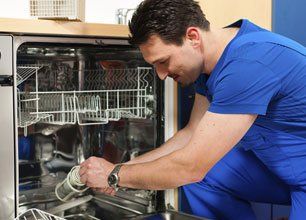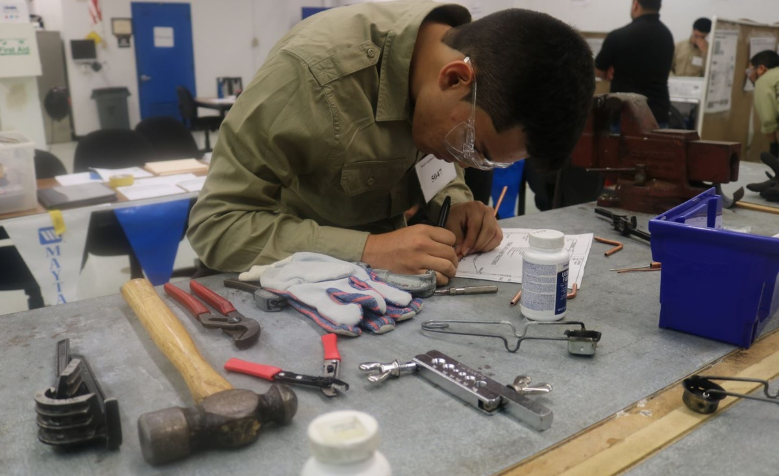Refrigerator Not Cooling? Refrigerator repair experts Dependable Refrigeration & Appliance Repair Offer Quick Troubleshooting Tips
Refrigerator Not Cooling? Refrigerator repair experts Dependable Refrigeration & Appliance Repair Offer Quick Troubleshooting Tips
Blog Article
Vital Tips for Effective Ref Repair Work to Expand Home Appliance Lifespan
When it comes to your refrigerator, appropriate repair work and maintenance are vital for longevity. You might not understand how tiny problems can intensify if they're left unaddressed. Routine check-ups and basic repairs can save you from expensive substitutes down the line. Comprehending usual problems and knowing when to act can make all the distinction. Let's discover some important pointers that will help you keep your fridge running efficiently for several years ahead.
Recognizing Typical Refrigerator Problems
Fridges are essential in keeping your food fresh, however they can experience a range of typical issues that disrupt their performance. One frequent problem is inadequate air conditioning. If you observe food ruining quicker than usual, check the thermostat setups or consider if the door seals are harmed. An additional typical issue is too much sound, which can indicate a malfunctioning compressor or a failing follower. You could likewise experience water pooling inside or beneath the refrigerator; this usually results from a stopped up defrost drain or a malfunctioning water line. In addition, if your refrigerator's light isn't working, it could be a simple bulb problem or an issue with the door button. Lastly, ice accumulation in the freezer can prevent air movement and cooling performance. Acknowledging these issues early can conserve you money and time out of commission, guaranteeing your refrigerator runs smoothly and efficiently.
Regular Maintenance Practices
To keep your appliances running efficiently, you need to remain on top of routine maintenance techniques. Tidy the condenser coils, check the door seals, and check the temperature level settings to assure peak performance. These basic jobs can save you time and money on repair services down the line.
Tidy Condenser Coils Routinely
Cleaning your condenser coils consistently can substantially improve your home appliance's performance. Dust and dirt develop up on these coils over time, triggering your home appliance to function tougher and take in even more energy. To keep them tidy, disconnect your device and meticulously get rid of any protective covers.
Check Door Seals
Three basic actions can aid you assure your appliance's door seals are in excellent condition. Evaluate the seals on a regular basis for any type of cracks, splits, or indications of wear. These damages can result in air leakages, influencing efficiency. Second, clean the seals utilizing warm, soapy water to eliminate any type of debris or grime. A tidy seal ensures a tight fit and far better performance. Perform a basic examination by closing the door on an item of paper. If you can easily draw it out without resistance, the seal might require changing. By complying with these actions, you'll preserve your device's effectiveness and durability, conserving you cash on energy bills and repairs over time.
Screen Temperature Setups
On a regular basis checking your home appliance's temperature level setups is necessary for ideal performance and efficiency. Utilize a thermometer to check these settings regularly, especially after significant changes, like relocating your home appliance or readjusting the thermostat. By staying positive about temperature level monitoring, you'll ensure your devices run smoothly and last longer.
Troubleshooting Air Conditioning Issues
When your fridge isn't cooling appropriately, it can bring about ruined food and wasted cash, so resolving the concern immediately is crucial. Begin by examining the temperature level setups to validate they go to the recommended degrees, normally around 37 ° F for the fridge and 0 ° F for the freezer. If the settings are appropriate, check the door seals for any kind of gaps or damages; a damaged seal can allow warm air to get in.
Following, take a look at the vents inside the fridge and freezer. Validate they're not obstructed by food things, as this can interfere with air flow. Pay attention for the compressor; if it's not running or making uncommon noises, it may need focus. Lastly, check the condenser coils, generally located at the back or bottom of the device. Dust and particles can gather, creating cooling down issues. Tidy them with a vacuum cleaner or brush to enhance performance. If problems continue, it may be time to call a specialist.
Fixing Water Leak and Ice Accumulation
If you're taking care of water leak or ice accumulation in your device, it's important to identify the resource of the trouble. By pinpointing where the water is coming from, you can prevent further problems and prevent expensive repair work. Allow's check out some effective approaches to tackle these typical troubles.
Determine Leakage Sources
Just how can you efficiently identify the sources of water leakage and ice accumulation in your devices? Start by checking the seals and gaskets on your fridge and freezer doors. A used or damaged seal can allow warm air to get in, triggering condensation and ice. Next off, check the drain pan and drainage system for clogs or blockages; a backed-up drain can result in water pooling. Try to find any loosened links in the water supply line, which can produce leakages. Analyze the defrost drainpipe for ice build-up, which could disrupt correct drainage. By systematically inspecting these midland appliance repair locations, you'll pinpoint the resource of the trouble, enabling you to take the needed actions to fix it and extend your device's life expectancy.
Prevent Ice Development
To avoid ice development in your devices, begin by confirming the temperature level settings are proper. If your refrigerator or freezer is too chilly, it can result in excessive ice build-up. Examine the door seals consistently; damaged seals can let cozy air in, creating condensation and ice development.
Maintain the device well-ventilated and avoid congestion, as this can block air movement - Best Appliance Repair Near You Dependable Refrigeration & Appliance Repair Service. Additionally, routinely thaw your freezer if it doesn't have an automated defrost function.
If you see water leak, recognize and fix any kind of blocked water drainage holes, as they can add to ice build-up. Clean the coils and confirm they're operating appropriately to keep peak efficiency. Taking these actions will aid prolong your appliance's life expectancy and efficiency.
Resolving Noisy Fridge Appears
While it could appear startling, a loud fridge commonly signals minor concerns rather than significant malfunctions. Identify the source of the sound. Common wrongdoers include the compressor, followers, and water lines. If you hear a buzzing sound, it could be the compressor working hard; this can simply be a normal procedure audio.
Following, inspect for loose products inside. In some cases, containers or racks can rattle, developing undesirable sound. Tighten up or reorganize them to get rid of the noises.
If you discover a clicking noise, it may be the defrost timer. This is normally safe yet might show it requires assessment.
An unbalanced device can create resonances and noise. Dependable Refrigeration & Appliance Repair Service LG Appliance Repair. Dealing with these concerns immediately can assist maintain your refrigerator's performance and lengthen its life expectancy.
When to Replace Parts vs. Complete Substitute

Nevertheless, if your device is older and experiencing numerous concerns, a full replacement could be extra cost-effective. Take into consideration the cost of repairs versus the home appliance's worth. If visit the website fixings surpass 50% of a brand-new device's cost, Your Domain Name it's typically wiser to purchase a substitute. In addition, if you observe continuous problems that maintain reoccuring, it's an indication that your device has actually gotten to the end of its life. Evaluate these aspects carefully to make the very best choice for your needs and budget.
Understanding When to Call a Specialist
How can you inform when it's time to hire a professional for appliance repair work? If you see uncommon sounds, scents, or leaks, it's a clear signal that something's incorrect. Do not neglect these indicators; they commonly indicate much deeper problems. If your appliance quits functioning entirely or frequently trips breaker, it's one more warning.
You should also consider your very own comfort level with repairs. If you're unclear concerning detecting the issue or do not have the right devices, it's ideal to connect for help. Keep in mind, attempting complicated repairs can bring about even more damage or perhaps safety risks.

Frequently Asked Concerns
Exactly how Commonly Should I Tidy the Fridge Coils?
You should cleanse your fridge coils every 6 months. This helps maintain efficiency and protects against overheating. If you see excessive dirt or pet hair, clean them much more often to assure your fridge runs smoothly.

Can I Utilize Vinegar for Cleansing My Fridge?
Yes, you can use vinegar to clean your fridge! It's an excellent natural cleaner that removes odors and discolorations. Dependable Refrigeration & Appliance Repair Refrigerator repair specialist of Oro Valley. Just blend it with water, apply it to surface areas, and wipe down for a fresh, clean refrigerator
What Temperature Should My Refrigerator Be Ready To?
You need to set your refrigerator to 37 ° F(3 ° C) for excellent food conservation. This temperature level maintains your food fresh while stopping spoilage, guaranteeing your groceries last much longer and reducing waste. It's a very easy change you can make!
Does a Refrigerator Need to Be Leveled?
Yes, your refrigerator needs to be leveled. If it's uneven, it can impact cooling down efficiency and cause excess sound. Examine the progressing legs and change them to assure appropriate equilibrium for optimal efficiency.
Exactly How Can I Minimize Fridge Energy Consumption?
To decrease your fridge's energy intake, maintain it tidy and well-ventilated, check door seals for leakages, set the temperature level in between 35-38 ° F, and prevent overloading it. These steps can substantially lower your power costs.
Report this page